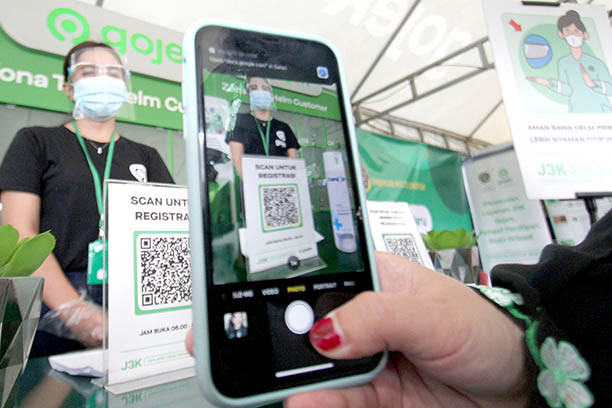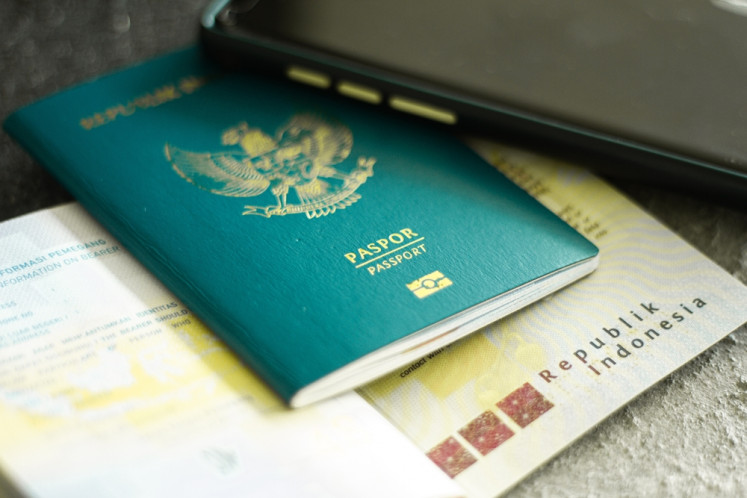Gojek looks ahead to more self-funding on core businesses' profitability
The on-demand and online payments service super app says that it is headed toward business sustainability with its core businesses attaining profitability this year.
Change Size
 A commuter scans a QR code to deposit her helmet at the Gojek comfort zone on Oct. 26, 2020 at Depok Baru railway station in Depok, West Java. (JP/Dhoni Setiawan )
A commuter scans a QR code to deposit her helmet at the Gojek comfort zone on Oct. 26, 2020 at Depok Baru railway station in Depok, West Java. (JP/Dhoni Setiawan )
I
ndonesian decacorn Gojek recorded operational profit in its four core businesses this year to date, which would enable it to expand self-funding in the future, a senior executive announced on Thursday.
Gojek co-CEO Andre Soelistyo said the company’s core businesses, on-demand transportation services GoRide and GoCar, goods delivery service GoSend and food delivery service GoFood, had all recorded positive contribution margins.
“We are more confident in our business sustainability going forward. Profitability means we can make more internal investments to drive our innovations and rely less on external fundraising,” he told reporters at a virtual press conference marking Gojek’s 10th anniversary on Thursday.
Continuing, he said that in the future, the company wanted to “seek out a balance” between self-funding and fundraising to grow its business.
Gojek’s moves toward increased sustainability is not unique among Indonesian unicorns, as startup funding has slowed in the second half of the year. Traveloka has announced that it is on a path to profitability, while Bukalapak has spoken about increasing its future gross profit.
At the same time, the COVID-19 health crisis has put a dampener on the ride-hailing sector. A study shows that active users of GoRide and GoCar declined 14 percent in the last week of March, although the company says that GoSend and GoFood remained stable.
Meanwhile, the e-Conomy SEA 2020 report released this week by Google, Temasek and Bain & Company projects a 18 percent contraction for Indonesia’s on-demand transportation and food delivery service sectors as an impact of the COVID-19 crisis.
But Andre said that Gojek’s annualized gross transaction value (GTV) across its platforms reached US$12 billion, up 10 percent from the previous year. Its grocery and shopping platforms GoMart and GoShop recorded a 500 percent jump in GTV while its online payment service, GoPay, saw transactions more than double year-on-year in October as Indonesian consumers increasingly turned to online platforms for their daily and payment needs.
“We can remain resilient during this challenging year and at the same time, we can strengthen our business fundamentals,” said Andre. “Going forward, we will optimize our services to support business sustainability.”
In April, Gojek secured fresh capital injection worth Rp 14.5 billion ($963,297) from seven investors, including Google Asia Pacific, East Ventures, Mandiri Capital Indonesia and Silicon Valley-based Pegasus Tech Ventures.









